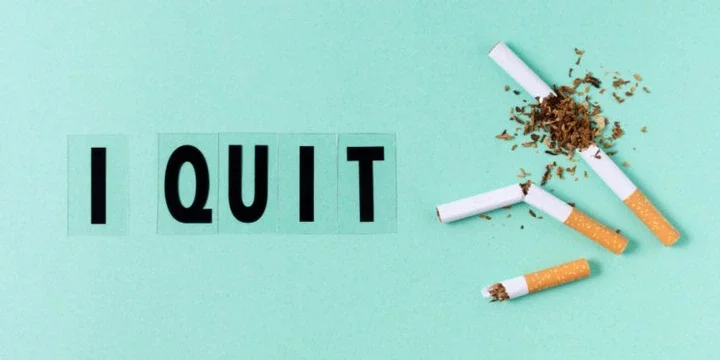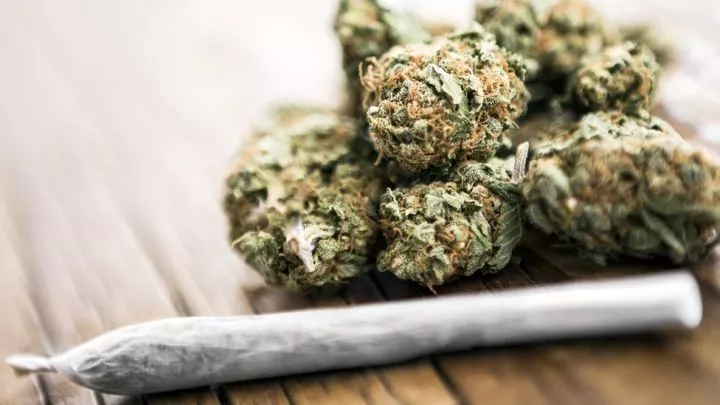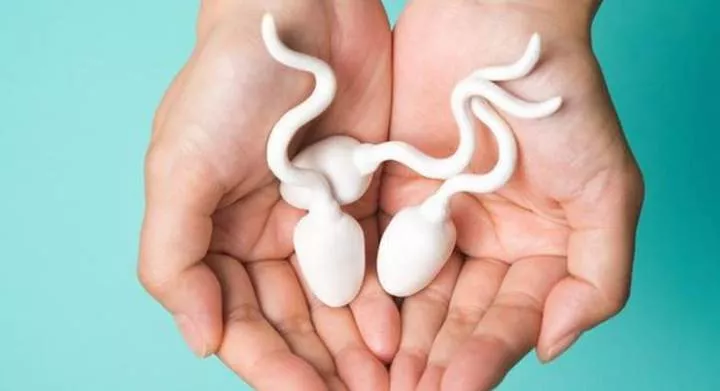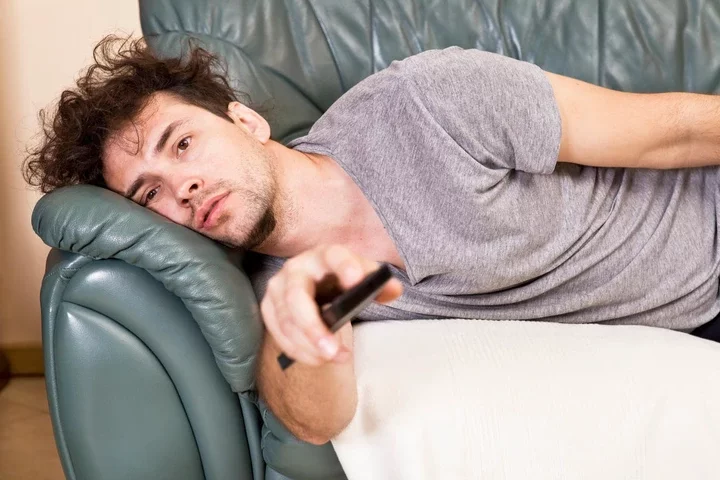
Quitting smoking is a significant commitment that requires preparation and determination. With the right plan, you can make the process easier and take the next step toward a healthier, smoke-free life.
Why is Quitting So Hard?
We all know the health risks of smoking, but that doesn't make it any easier to kick the habit. Whether you're an occasional smoker or a lifetime pack-a-day smoker, quitting can be tough.
Smoking is both a physical addiction and a psychological habit. The nicotine from cigarettes provides a temporary-and addictive-high. Eliminating that regular fix of nicotine causes your body to experience physical withdrawal symptoms and cravings. Because of nicotine's "feel good" effect on the brain, you may turn to cigarettes to boost your mood, relieve stress, and unwind. Smoking can also be a way of coping with depression, anxiety, or boredom. Quitting means finding different, healthier ways to cope with those feelings.
Smoking is also ingrained as a daily ritual. You might automatically reach for a cigarette with your morning coffee, during a break at work, or on your commute home. Or perhaps your friends, family, or colleagues smoke, and it's become part of how you relate to them.
To successfully stop smoking, you'll need to address both the addiction and the habits and routines that go along with it. But it can be done. With the right support and quit plan, any smoker can kick the addiction-even if you've tried and failed multiple times before.
Your Personal Stop Smoking Plan
While some smokers successfully quit by going cold turkey, most people do better with a tailored plan to keep themselves on track. A good quit plan addresses both the short-term challenge of stopping smoking and the long-term challenge of preventing relapse. It should also be tailored to your specific needs and smoking habits.
Questions to Ask Yourself
Take the time to think about what kind of smoker you are, which moments in your life call for a cigarette, and why. This will help you identify which tips, techniques, or therapies may be most beneficial for you.
Are you a very heavy smoker (more than a pack a day)?
Are you more of a social smoker?
Would a simple nicotine patch do the job?
Are there certain activities, places, or people you associate with smoking?
Do you feel the need to smoke after every meal or whenever you break for coffee?
Do you reach for cigarettes when you're feeling stressed or down?
Is your cigarette smoking linked to other addictions, such as alcohol or gambling?
Start Your Stop Smoking Plan with START
S = Set a quit date.
Choose a date within the next two weeks, so you have enough time to prepare without losing your motivation to quit. If you mainly smoke at work, quit on the weekend so you have a few days to adjust to the change.
T = Tell family, friends, and co-workers about quitting.
Let your friends and family in on your plan to quit smoking and tell them you need their support and encouragement to stop. Look for a quit buddy who wants to stop smoking as well. You can help each other get through the rough times.
A = Anticipate and plan for the challenges you'll face while quitting.
Most people who begin smoking again do so within the first three months. You can help yourself make it through by preparing ahead for common challenges, such as nicotine withdrawal and cigarette cravings.
R = Remove cigarettes and tobacco from your home, car, and work.
Throw away all of your cigarettes, lighters, ashtrays, and matches. Wash your clothes and freshen up anything that smells like smoke. Shampoo your car, clean your drapes and carpet, and steam your furniture.
T = Talk to your doctor about getting help to quit.
Your doctor can prescribe medication to help with withdrawal symptoms. If you can't see a doctor, you can get many products over the counter at your local pharmacy, including nicotine patches, lozenges, and gum.
Identify Your Smoking Triggers
One of the best things you can do to help yourself quit is to identify the things that make you want to smoke, including specific situations, activities, feelings, and people.
Keep a Craving Journal
A craving journal can help you zero in on your patterns and triggers. For a week or so leading up to your quit date, keep a log of your smoking. Note the moments in each day when you crave a cigarette:
What time was it?
How intense was the craving (on a scale of 1-10)?
What were you doing?
Who were you with?
How were you feeling?
How did you feel after smoking?
Do You Smoke to Relieve Unpleasant Feelings?
Many of us smoke to manage unpleasant feelings such as stress, depression, loneliness, and anxiety. When you have a bad day, it can seem like cigarettes are your only friend. As much comfort as cigarettes provide, though, it's important to remember that there are healthier and more effective ways to keep unpleasant feelings in check. These may include exercising, meditating, relaxation strategies, or simple breathing exercises.
For many people, an important aspect of giving up smoking is to find alternate ways to handle these difficult feelings without turning to cigarettes. Even when cigarettes are no longer a part of your life, the painful and unpleasant feelings that may have prompted you to smoke in the past will remain. So it's worth thinking about how you intend to deal with stressful situations and the daily irritations that would normally have you lighting up.
Tips for Avoiding Common Triggers
Alcohol: Many people smoke when they drink. Try switching to non-alcoholic drinks or drink only in places where smoking inside is prohibited. Alternatively, try snacking on nuts, chewing on a cocktail stick or sucking on a straw.
Other smokers: When friends, family, and co-workers smoke around you, it can be doubly difficult to give up or avoid relapse. Talk about your decision to quit so people know they won't be able to smoke when you're in the car with them or taking a coffee break together. In your workplace, find non-smokers to have your breaks with or find other things to do, such as taking a walk.
End of a meal: For some smokers, ending a meal means lighting up, and the prospect of giving that up may appear daunting. However, you can try replacing that moment after a meal with something else, such as a piece of fruit, a healthy dessert, a square of chocolate, or a stick of gum.
Coping with Nicotine Withdrawal Symptoms
Once you stop smoking, you'll likely experience several physical symptoms as your body withdraws from nicotine. Nicotine withdrawal begins quickly, usually starting within an hour of the last cigarette and peaking two to three days later. Withdrawal symptoms can last for a few days to several weeks and differ from person to person.
Common nicotine withdrawal symptoms include:
Cigarette cravings
Irritability, frustration, or anger
Anxiety or nervousness
Difficulty concentrating
Restlessness
Increased appetite
Headaches
Insomnia
Tremors
Increased coughing
Fatigue
Constipation or upset stomach
Depression
Decreased heart rate
As unpleasant as these withdrawal symptoms may be, it's important to remember that they are only temporary. They will improve in a few weeks as the toxins are flushed from your body. In the meantime, let your friends and family know you won't be your usual self and ask for their understanding.
Manage Cigarette Cravings
While avoiding smoking triggers will help reduce your urge to smoke, you probably can't avoid cigarette cravings entirely. Fortunately, cravings don't last long-typically, about 5 or 10 minutes. If you're tempted to light up, remind yourself that the craving will soon pass and try to wait it out. It helps to be prepared in advance by having strategies to cope with cravings.
Distract yourself: Do the dishes, turn on the TV, shower, or call a friend. The activity doesn't matter as long as it distracts you from smoking.
Remind yourself why you quit: Focus on your reasons for quitting, including the health benefits (lowering your risk for heart disease and lung cancer, for example), improved appearance, money you're saving, and enhanced self-esteem.
Get out of a tempting situation: Where or what you're doing may trigger the craving. If so, a change of scenery can make all the difference.
Reward yourself: Reinforce your victories. Whenever you triumph over a craving, give yourself a reward to keep yourself motivated.
Coping with Cigarette Cravings in the Moment
Find an oral substitute: Keep other things around to pop in your mouth when cravings hit. Try mints, carrot or celery sticks, gum, or sunflower seeds. Or suck on a drinking straw.
Keep your mind busy: Read a book or magazine, listen to some music you love, do a crossword or Sudoku puzzle, or play an online game.
Keep your hands busy: Squeeze balls, pencils, or paper clips are good substitutes to satisfy that need for tactile stimulation.
Brush your teeth: The just-brushed, clean feeling can help banish cigarette cravings.
Drink water: Slowly drink a large glass of water. Not only will it help the craving pass, but staying hydrated helps minimize the symptoms of nicotine withdrawal.
Light something else: Light a candle or some incense instead of lighting a cigarette.
Get active: Go for a walk, do some jumping jacks or pushups, try yoga stretches, or run around the block.
Try to relax: Do something that calms you down, such as taking a warm bath, meditating, reading a book, or practising deep breathing exercises.
Go somewhere smoking is prohibited: Step into a public building, store, mall, coffee shop, or movie theatre, for example.
Preventing Weight Gain After You Stop Smoking
Smoking acts as an appetite suppressant, so gaining weight is a common concern for many of us when we decide to give up cigarettes. You may even be using it as a reason not to quit. While it's true that many smokers put on weight within six months of stopping smoking, the gain is usually small-about five pounds on average-and that initial gain decreases over time. It's also important to remember that carrying a few extra pounds for a few months won't hurt your heart as much as smoking does. However, gaining weight is NOT inevitable when you stop smoking.
Smoking dampens your sense of smell and taste, so food will often seem more appealing after you quit. You may also gain weight if you replace the oral gratification of smoking with eating unhealthy comfort foods. Therefore, it's important to find other, healthy ways to deal with unpleasant feelings such as stress, anxiety, or boredom rather than mindless, emotional eating.
Nurture yourself: Instead of turning to cigarettes or food when you feel stressed, anxious, or depressed, learn new ways to soothe yourself quickly. Listen to uplifting music, play with a pet, or sip hot tea, for example.
Eat healthy, varied meals: Eat plenty of fruit, vegetables, and healthy fats. Avoid sugary food, sodas, fried, and convenience food.
Learn to eat mindfully: Emotional eating tends to be automatic and virtually mindless. It's easy to polish off a tub of ice cream while zoning out in front of the TV or staring at your phone. But by removing distractions when you eat, it's easier to focus on how much you're eating and tune into your body and how you're really feeling. Are you still hungry or eating for another reason?
Drink lots of water: Drinking at least six to eight 8 oz. glasses will help you feel full and keep you from eating when you're not hungry. Water will also help flush toxins from your body.
Take a walk: Not only will it help you burn calories and keep the weight off, but it will also help alleviate feelings of stress and frustration that accompany smoking withdrawal.
Snack on guilt-free foods: Good choices include sugar-free gum, carrot and celery sticks, or sliced bell peppers or jicama.
Medication and Therapy to Help You Quit
There are many different methods that have successfully helped people to kick the smoking habit. While you may be successful with the first method you try, you'll likely have to try several different methods or a combination of treatments to find the ones that work best for you.
Medications
Smoking cessation medications can ease withdrawal symptoms and reduce cravings. They are most effective when used as part of a comprehensive stop-smoking program monitored by your physician. Talk to your doctor about your options and whether an anti-smoking medication is right for you. The U.S. Food and Drug Administration (FDA) approved options are:
Nicotine replacement therapy: Nicotine replacement therapy involves "replacing" cigarettes with other nicotine substitutes, such as nicotine gum, patch, lozenge, inhaler, or nasal spray. It relieves some of the withdrawal symptoms by delivering small and steady doses of nicotine into your body without the tars and poisonous gases found in cigarettes. This type of treatment helps you focus on breaking your psychological addiction and makes it easier to concentrate on learning new behaviors and coping skills.
Non-nicotine medication: These medications help you stop smoking by reducing cravings and withdrawal symptoms without the use of nicotine. Medications such as bupropion (Zyban) and varenicline (Chantix, Champix) are intended for short-term use only.
What to Do If You Slip or Relapse
Most people try to stop smoking several times before they kick the habit for good, so don't beat yourself up if you slip up and smoke a cigarette. Instead, turn the relapse into a rebound by learning from your mistake. Analyze what happened right before you started smoking again, identify the triggers or trouble spots you ran into, and make a new stop-smoking plan that eliminates them.
It's also important to emphasize the difference between a slip and a relapse. If you start smoking again, it doesn't mean that you can't get back on the wagon. You can choose to learn from the slip and let it motivate you to try harder or you can use it as an excuse to go back to your smoking habit. But the choice is yours. A slip doesn't have to turn into a full-blown relapse.
You're not a failure if you slip up. It doesn't mean you can't quit for good.
Don't let a slip become a mudslide. Throw out the rest of the pack. Getting back on the non-smoking track as soon as possible is important.
Look back at your quit log and feel good about the time you went without smoking.
Find the trigger. Exactly what was it that made you smoke again? Decide how you will cope with that issue the next time it comes up.
Learn from your experience. What has been most helpful? What didn't work?
Are you using a medicine to help you quit? Call your doctor if you start smoking again. Some medicines cannot be used if you're smoking at the same time.
Conclusion
Quitting smoking is a challenging but rewarding journey. By understanding your triggers, preparing for withdrawal symptoms, and utilizing support systems, you can overcome the addiction and lead a healthier, smoke-free life. Remember, every step you take towards quitting is a victory. Stay committed, seek support, and don't be discouraged by setbacks. Your smoke-free future is within reach.
FAQs
1. How can I deal with the stress of quitting smoking?
Finding alternative ways to manage stress is crucial. Exercise, meditation, deep breathing exercises, and engaging in hobbies can help reduce stress without turning to cigarettes.
2. What should I do if I experience intense cravings?
Distract yourself with activities, remind yourself why you quit, change your environment, and have oral substitutes like gum or carrots on hand to manage cravings.
3. Is it common to gain weight after quitting smoking?
Yes, it's common to gain a small amount of weight after quitting. However, focusing on healthy eating, drinking plenty of water, and staying active can help manage weight gain.
4. Are there medications that can help me quit smoking?
Yes, there are both nicotine replacement therapies (like patches and gum) and non-nicotine medications (like bupropion and varenicline) that can help reduce withdrawal symptoms and cravings.
5. What should I do if I relapse and smoke a cigarette?
Don't be too hard on yourself. Identify what triggered the relapse, learn from the experience, and get back on track with your quit plan. A slip doesn't mean you've failed.

















Comments